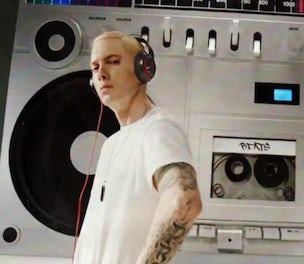Does your CEO surpass the Windows test?
How do you know if your chief executive is crap? It’s a question rarely asked by those further down the organisational ladder – especially humble marketers. The combination of corporate culture, dissonance reduction and internal propaganda usually befuddle most employees into believing that their ultimate boss is an amazing, charismatic genius who can do no wrong.

That’s unfortunate because, like any other corporate position, the quality of a CEO can vary enormously. A recent survey from Stanford University, for example, found that less than half the board level executives surveyed rated their own CEO in the top 20 per cent.
So how do you know if your CEO is second- or first-rate? There are five keys test of a CEO’s quality and here I’ll apply them to Steve Ballmer, the CEO of Microsoft, who announced his imminent retirement last week.
Test one is a simple comparison of the market capitalisation of the company when a CEO took over versus the day they quit. In the case of Microsoft, the company was worth just over $600bn (£387bn) when Steve Ballmer took the helm in January 2000. Thirteen years of leadership later and that value has more than halved to $285bn. That’s quite a result, especially considering Microsoft was operating in one of the fastest growing categories in the history of capitalism during that period.
Test two usually explains the results of test one – strategic success. After a requisite period of time in charge, a good CEO will have evolved the company in key directions and launched new, fruitful strategic initiatives. In the case of Microsoft, Ballmer has managed to launch a toilet-load of failures over the past decade: Surface, Mediaroom, Vista, Windows 8 and the infamous Zune to name but five. No CEO gets it right all the time but Ballmer has proven remarkably consistent in creating new offerings across both software and hardware platforms that have failed to impress. Add to that his equally remarkable ability to underestimate the competitive threats posed by rivals’ products and you have a potent formula for consistent failure. Google’s Chrome, Android phones and even Apple’s iPhone which had “no chance to get any significant market share” were all dismissed by Ballmer. “There’s nothing more important at Microsoft than Windows,” Ballmer boomed at the Consumer Electronics Show last year. Well at least he got one thing right. Without Microsoft’s eponymous software, invented long before Ballmer took control, the company would have suffered a Nokia-style meltdown.
Test three is leadership profile. A great CEO has a certain aura that projects to both employees and external observers. Run a YouTube search for any top-brand CEO and you will likely gain an instant insight into their fundamental leadership persona. In the case of Steve Ballmer that search reveals a series of clips in which he sweats profusely, shouts very loudly and grossly underestimates rivals’ launches. It might sound odd to some of the Gen Y readers out there but there was a time when Microsoft was cool. Consumers would line the streets overnight to get their hands on new Microsoft software. Not any more. And YouTube provides many of the reasons why.
https://www.youtube.com/watch?v=e8M6S8EKbnU
Test four is all about succession planning. A great CEO has nurtured his team and has a succession plan in place with his or her replacement waiting in the wings to take over. In contrast, Microsoft currently has no idea who will take Ballmer’s place. In his resignation letter to colleagues he told them that “there is never a perfect time for this kind of transition”. Maybe at Microsoft. At other firms that time is planned and prepared for.
Test five covers the external reaction to the news of a CEO’s departure. Remember the huge debate about how Apple would fare without Steve Jobs? Now contrast that with the response to Ballmer’s departure. The majority of analysts and journalists have resorted to calling his tenure a “lost decade” for Microsoft. The financial markets seem to agree. Microsoft’s shares jumped by as much as 8 per cent on news that Ballmer was exiting the business on Friday. Is there a more definitive signal of a CEO’s inability? I doubt it.
Have I been too hard on Steve Ballmer? Perhaps. But can I remind you that despite his failures at Microsoft he leaves with an estimated wealth
of $15bn, making him the 51st richest person on the planet. In terms of remuneration, if nothing else, Ballmer is one of the most impressive CEOs in history.






